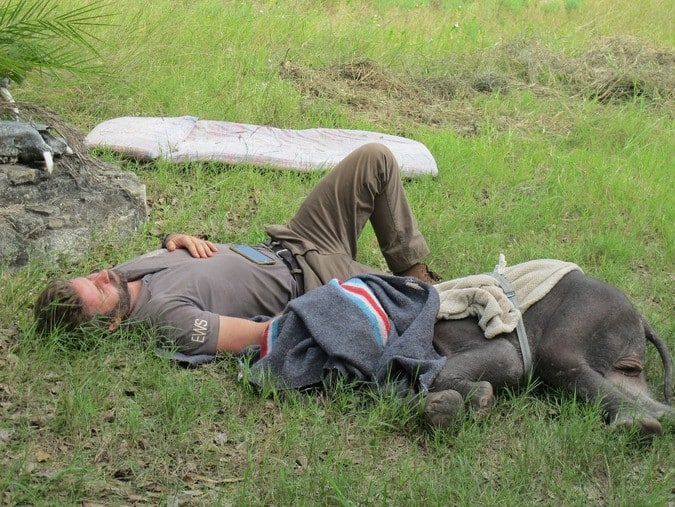In the vastness of the Maputo Special Reserve in Mozambique, a lone baby elephant teetered on the brink of death, isolated and desperate.
Thanks to the concerted efforts of a coalition of individuals and organizations, this three-month-old elephant now has a new lease on life.

Awaiting authorization to be transferred to a specialized care facility in South Africa, there is hope on the horizon for her survival.
The success of her rescue story owes much to the vigilance of the members of the Muvucuza Community within the Maputo Special Reserve, who quickly alerted park rangers upon finding the calf in distress.

The elephant would likely have faced a tragic fate without their swift response.
Acting promptly, a collaborative effort involving the Mozambique National Administration of Conservation Areas (ANAC), Save the Elephants, the Dyck Advisory Group, and the Peace Parks Foundation (PPF) was mobilized to rescue the calf.
Dr. Carlos Lopes Pereira from ANAC and Michelle Henley from Elephants Alive are working with the South African Department of Environment to secure import permits for the elephant’s transfer.

Discovered in a desperate condition, weak from malnutrition and dehydration, the calf had endured approximately three days alone.
Dr. João Almeida, a veterinarian affiliated with Save the Elephants, underscored the urgency of the situation.
The successful intervention and promising progress in the calf’s recovery in the Maputo Special Reserve are heartening.

Swift actions such as the dispatch of specialized raw milk from South Africa and immediate intravenous administration showcase the dedication and coordination involved in wildlife conservation.
Positive signs like regular sleep, normal bowel movements, and increased strength indicate an improvement in the calf’s health.
Commitment to frequent feeding and hydration is crucial for her chances of survival, and witnessing these initiatives bringing marked improvements is heartening.

Perceptions surrounding the rare instances where elephants abandon their calves due to prolonged illnesses offer valuable insights into understanding and addressing such situations, contributing to more informed conservation strategies in the future.
This incident underscores the importance of collaborative conservation efforts to safeguard the biodiversity of the Maputo Special Reserve.
Wildlife conservation is a shared responsibility involving diverse stakeholders, and this successful rescue exemplifies the positive outcomes that practical cooperation can yield.

As the Maputo Special Reserve gains popularity as a tourist destination, the potential benefits for local communities are promising.
Increased tourism could create enhanced livelihood opportunities, fostering a sustainable relationship between conservation efforts and the well-being of nearby residents.
In summary, this story demonstrates the positive impact of proactive conservation measures, collaborative efforts, and the potential for conservation to contribute to wildlife welfare and the prosperity of local communities.
Protecting unique wildlife is a collective responsibility and a testament to the effectiveness of community engagement.